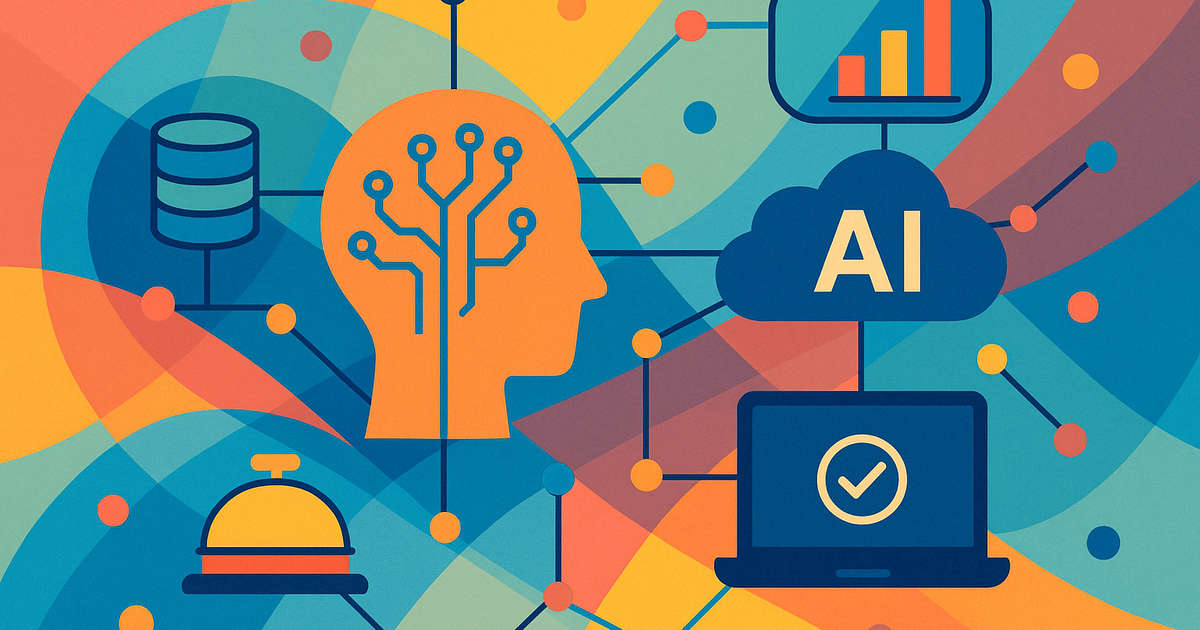
This article concludes Hospitality Net’s Thematics campaign with Shiji Group on Single Provider for Seamless Data. Throughout the series we have examined how integrated systems can transform hotel operations and the guest journey. For this final edition, the focus turns to one of the most pressing questions facing the industry today: how to build clean, connected datasets that can support useful applications of artificial intelligence.
AI has dominated recent discussions in hospitality, often accompanied by high expectations and bold promises. Yet as many experts remind us, the effectiveness of AI depends less on algorithms than on the quality of the data that feeds them. “Garbage in, garbage out” is more than a cliché. Without structured, accurate, and connected data, AI initiatives risk producing errors, wasted investment, or misleading personalisation. The real question is not only what AI can do, but which data connections and practices are essential to make it work in a hotel environment.
Capturing the Right Information
Natalie Kimball, Vice President Strategic Account Management – Distribution at Shiji Group, stresses that accuracy starts on property. Updates to amenities or policies often depend on employees entering the right information at the right moment, whether through a CRS, PMS, OTA extranet, or channel manager. What is needed is a system that continuously monitors connected APIs and third parties, validates changes, and ensures information stays correct in real time.
Structured Data and Clear Governance
Hospitality consultant Fergus Boyd underlines that preparing data for AI is not fundamentally different from preparing it for any other technology. Data must be normalised, deduplicated, and governed. While generative AI can add value by interpreting unstructured sources like reviews or transcripts, it still stumbles over hospitality logic such as dates, check-in and check-out, or revenue recognition. Clean, structured data and proper integrations remain the foundation, supported by middleware, automation, and human oversight.
Unique Contexts, Flexible Systems
Hospitality technology and revenue management consultant Ira Vouk argues that AI cannot be reduced to a fixed set of use cases. Each hotel company has its own mix of operations, systems, and structures. Opportunities for AI are therefore unique to each context. Rather than chasing universal recipes, organisations should focus on building flexible, well-connected data foundations that allow use cases to evolve as both technology and business needs change.
From Garbage In to Hallucinations Out
Simone Puorto, Head of Emerging Trends and Strategic Innovation at Hospitality Net, cautions that the real danger lies not only in garbage data but in persuasive hallucinations. AI can fabricate coherence out of flawed inputs, making the errors harder to detect. For him, the issue is as much about governance and human trust as about technical silos. Without proper oversight, even employees can sabotage data flows, creating risks that go far beyond technical challenges.
Essential Connections for Smaller Brands
Hospitality and travel technologist Max Starkov identifies PMS, CRS, and CRM as the three critical systems to connect with true two-way APIs. For smaller hotel groups and independents, this integration is the essential step towards preparing for agentic AI. He advises beginning with a CRM to aggregate and clean first-party and zero-party data, and then extending towards a CDP. The more hotels know about guest preferences and value, the better AI can support personalisation, recognition, and loyalty.
The Discipline of Data Standards
Mark Fancourt, Co-Founder at TRAVHOTECH, warns that hospitality has long suffered from poor data architecture and a lack of discipline in maintaining quality. His experience shows that a single source of truth remains a necessary goal, achievable only through data standardisation, cleanup, and consolidation. Technology can support the process, but there are no shortcuts. Without a shared foundation, staff may literally speak a different language, undermining efforts before they start.
Practical Integrations and Incremental Progress
Custódio Barreiros, Founder and CEO of EIP MGT, emphasises that AI’s value depends on data quality and connectivity across key systems such as PMS, RMS, POS, CRM, and channel managers. These must be integrated in real time with bi-directional flows. He calls for vendor-neutral and flexible interfaces that allow incremental improvement rather than waiting for perfection. The goal is not to replace the human element, but to empower staff with faster and smarter tools.
From Back-of-House to Guest-Facing Systems
Adam Mogelonsky, Partner at Hotel Mogel Consulting Ltd., highlights the importance of linking back-of-house systems such as PMS and CRM/CDP with guest-facing applications. AI-ready data has little impact if it stays behind the scenes. To close the loop, hotels need guest engagement management systems that provide a unified inbox and enable automated personalisation across email, text, and voice. Only then can clean data become meaningful throughout the guest journey.
Looking Ahead
Across these perspectives, one message stands out: clean and connected data is not a side project but the foundation for meaningful AI in hospitality. The systems that matter most may vary by property or brand, but the principles are consistent. Accuracy begins with the people entering the data, is supported by integrations and governance, and must extend from back-of-house to guest-facing systems.
This final article in the Thematics campaign underlines a simple truth: artificial intelligence will only be as strong as the data that underpins it. By investing in clean connections and solid governance today, hospitality can build the conditions for AI to deliver genuine value tomorrow.
Please visit:
Our Sponsor
